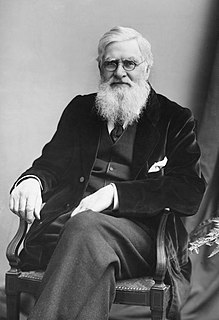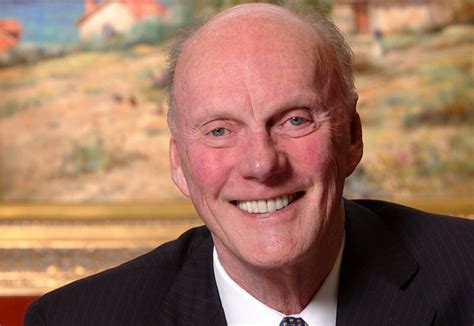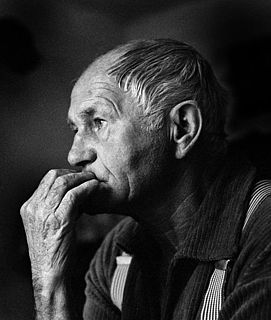A Quote by Alfred Russel Wallace
In my solitude I have pondered much on the incomprehensible subjects of space, eternity, life and death.
Quote Topics
Related Quotes
Solitude is a condition of peace that stands in direct opposition to loneliness. Loneliness is like sitting in an empty room and being aware of the space around you. It is a condition of separateness. Solitude is becoming one with the space around you. It is a condition of union. loneliness is small, solitude is large. loneliness closes in around you; solitude expands toward the infinite. loneliness has its roots in words, in an internal conversation that nodbody answers; solitude has it's roots in the great silence of eternity.
Where is it I've read that someone condemned to death says or thinks, an hour before his death, that if he had to live on some high rock, on such a narrow ledge that he'd only room to stand, and the ocean, everlasting darkness, everlasting solitude, everlasting tempest around him, if he had to remain standing on a square yard of space all his life, a thousand years, eternity, it were better to live so than to die at once. Only to live, to live and live! Life, whatever it may be!
Profound meditation in solitude and silence frequently exalts the mind above its natural tone, fires the imagination, produces the most refined and sublime conceptions. The soul then tastes the purest and most refined delight, and almost loses the idea of existence in the intellectual pleasure it receives. The mind on every motion darts through space into eternity; and raised, in its free enjoyment of its powers by its own enthusiasm, strengthens itself in the habitude of contemplating the noblest subjects, and of adopting the most heroic pursuits.
Death is the end of the fear of death. [...] To avoid it we must not stop fearing it and so life is fear. Death is time because time allows us to move toward death which we fear at all times when alive. We move around and that is fear. Movement through space requires time. Without death there is no movement through space and no life and no fear. To be aware of death is to be alive is to fear is to move around in space and time toward death.
It is completely incomprehensible to us how God can reveal himself and to some extent make himself known in created beings: eternity in time, immensity in space, infinity in finite, immutability in change, being in becoming, the all, as it were, in that which is nothing. This mystery cannot be comprehended; it can only be gratefully acknowledged.
Death is a solemn event for everyone. It is the winding up of all earthly plans and expectations. It is a separation from all we have loved and lived with. It is often accompanied by much bodily pain and distress. It opens the door to judgement and eternity - to heaven or to hell. It is an event after which there is no change, or space for repentance.
The deepest and most organic death is death in solitude, when even light becomes a principle of death. In such moments you will be severed from life, from love, smiles, friends and even from death. And you will ask yourself if there is anything besides the nothingness of the world and your own nothingness.





































